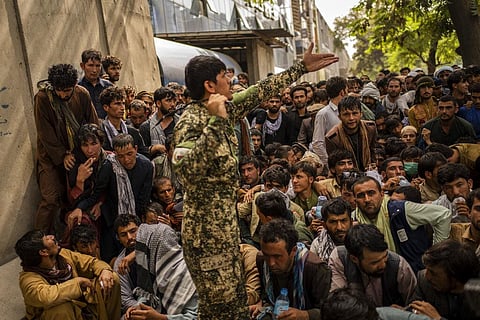

NEW YORK: Raising concern over the ongoing humanitarian situation in Afghanistan, UN Migration Agency said that Afghanistan may fall into "extreme poverty" by mid-2022 if no action is taken immediately to address the simultaneous humanitarian, economic and political crises.
"Afghanistan is a country of almost 40 million people, nearly all of whom may fall into extreme poverty by mid-2022 if no action is taken immediately to address the simultaneous humanitarian, economic and political crises," the International Organization for Migration (IOM) said in a statement on Wednesday, November 17, 2021.
The country's essential services are collapsing. Prices of basic commodities have skyrocketed while employment opportunities continue to vanish. The banking system is severely disrupted, creating massive cash shortages across the country, and the COVID-19 pandemic is ongoing, it said.
According to the IOM statement, Afghanistan is facing large-scale displacement at present.
"There are now an estimated 5.5 million Internally Displaced Persons (IDPs), including those living in protracted situations, and more than 680,000 newly displaced by conflict in 2021. This is in addition to 1.1 million undocumented Afghan returnees from Iran and Pakistan in 2021 alone."
On Wednesday (local time), United Nations Security Council has convened the meeting on the Afghanistan situation. Representatives from various countries took part in the meeting.
Strengthening call for a more inclusive government in Afghanistan, the United Nations has said that the country is facing curtailment of women's and girls' fundamental rights under the Taliban.
"There has been a general curtailment of Afghan women's and girls' fundamental rights and freedoms," Special Representative of the Secretary-General and Head of the United Nations Assistance Mission in Afghanistan Deborah Lyons told the UN Security Council.
"On girls education, the de-facto authorities have indicated they are working on a country-wide policy so that the right to girls' education can be exercised across the country," she said.
But Lyons emphasised that the Taliban officials have stated that they need more time to clarify the policy and its implementation.